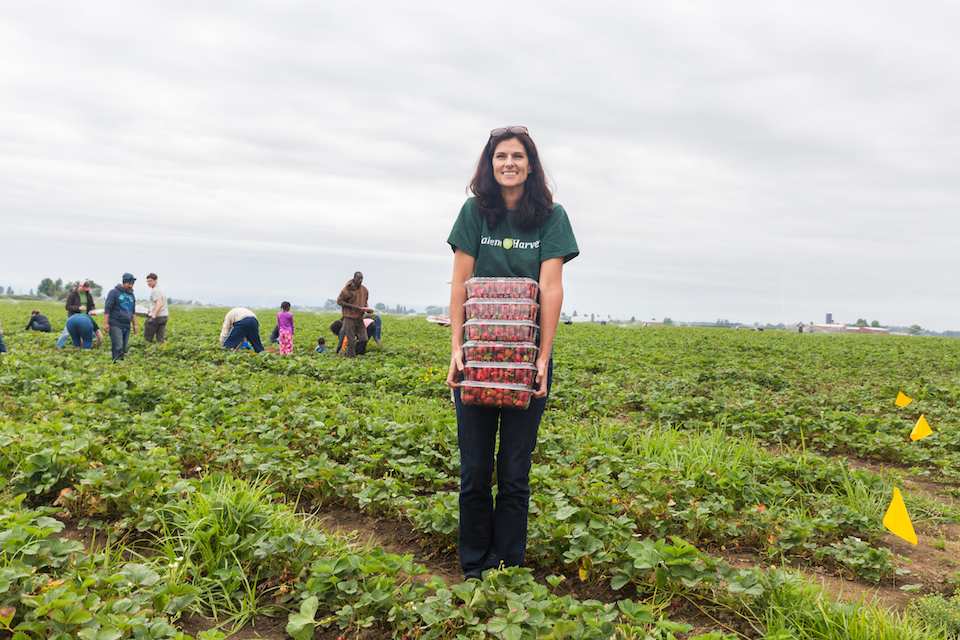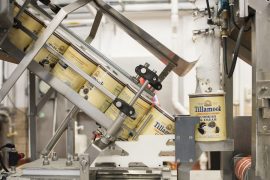written by Bronte Dod | photos by Joni Kabana
Even though an Oregon farmer and processor were only two miles apart, Chile and Mexico had become a wedge. The foreign markets tried to financially undercut the local marionberry farmer by enticing the Portland suburban processor to buy its berries at a cheaper rate.
The farmer was left with seventy acres of marionberries that would ripen within a week, and, if not harvested, would go to waste.
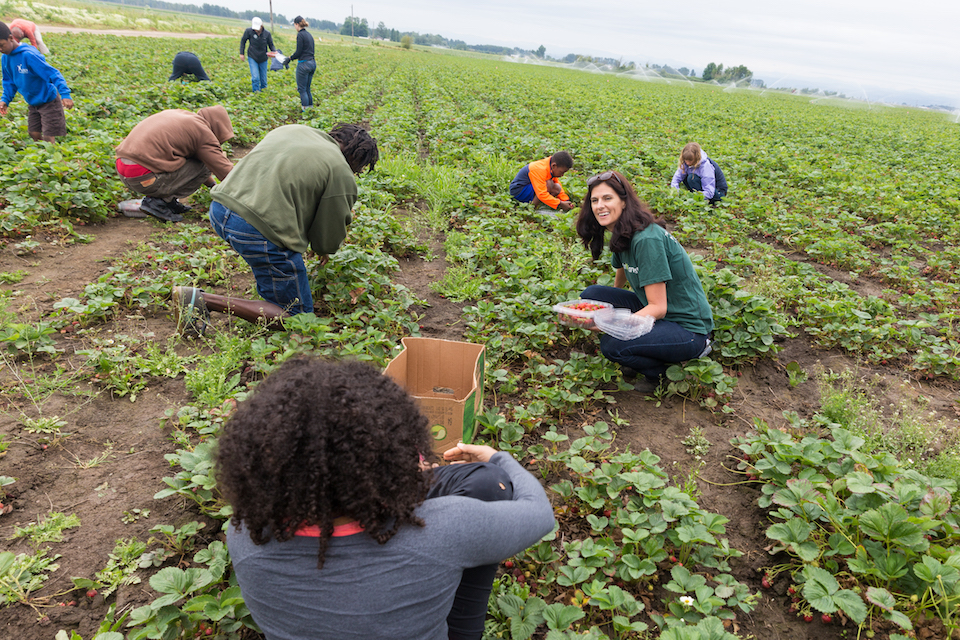
“That’s what farmers face every day,” said Elise Bauman, the executive director at Salem Harvest. The farmer contacted Bauman. Within hours Bauman was able to organize fifty volunteers to harvest the marionberries. They harvested 600 pounds of the fruit in one evening.
The model of Salem Harvest, founded in 2010, is recognized nationally for its efficiency and success in using already-in-place systems to fight hunger in a community. Volunteers get to keep up to half of the produce they harvest. The rest is donated to Marion-Polk Food Share, which distributes to food pantries around the Willamette Valley.
In 2015, Salem Harvest donated 320,886 pounds of produce—more than one million servings—which otherwise would have gone to waste due to a variety of reasons.
“The way we see it—the more we harvest, the less is being wasted and the more food is available for hungry people,” Bauman said. “Healthier, nutritious, fresh food, rather than boxes and cans, is getting through to hungry people in our community.”
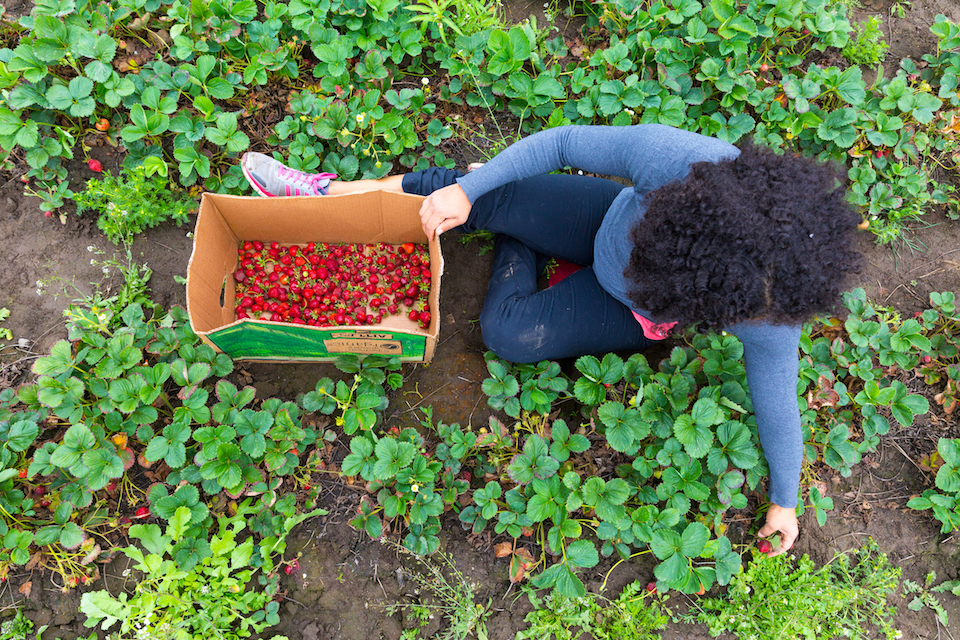
Since taking on the position about a year ago, Bauman has learned about the origins of food waste and spent time talking to farmers about their processes and needs. Reasons for waste vary from market and labor conditions to crops leftover from pollinator trees.
“There’s tons of reasons why farms are wasting food that is perfectly good. Maybe they don’t see it as being waste because it’s been that way for centuries,” Bauman said. “But if they had an option [not to waste], would they take it?”
Bauman’s biggest challenge is getting farmers to trust the organization and the volunteers. She has a network of forty-three homeowners and farmers who use Salem Harvest volunteers to harvest produce.
Greg Bennett is a third-generation farmer in Brooks. He’s worked with Salem Harvest since the organization began. He calls Salem Harvest when his onion crop won’t sell in the national or international markets because of their appearance. Last fall, Salem Harvest volunteers picked 44,000 pounds of onions from his farm. He said the respect the volunteers have for his property is exceptional.
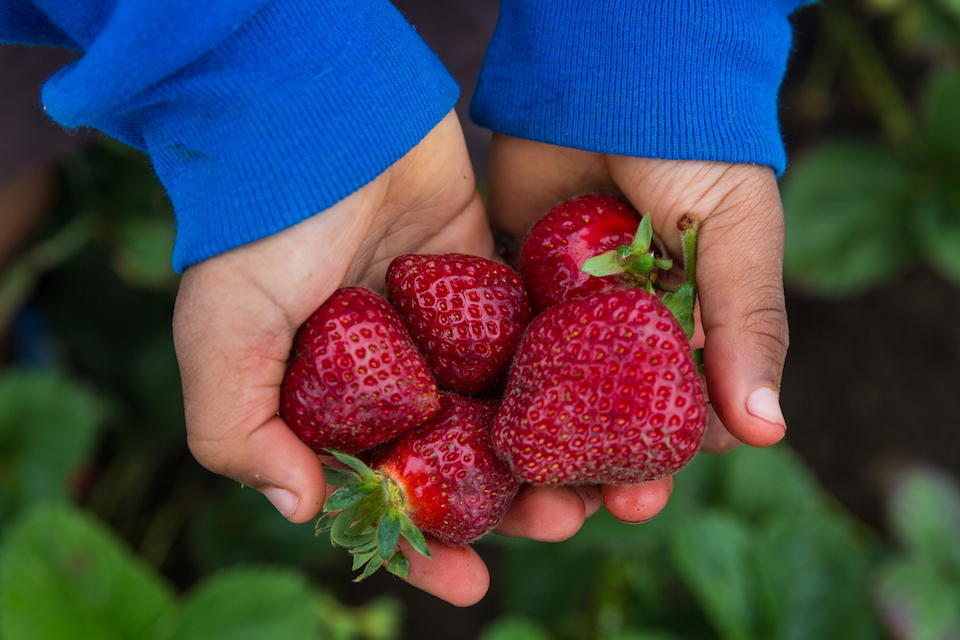
“I think it’s a win-win deal,” Bennett said. “It’s a great thing for people that are in need. I’m amazed at the amount of the waste in this country.”
Bauman’s long-term goals grow far beyond the Willamette Valley. She works with other organizations around the country, sharing the model of Salem Harvest and offering her suggestions and support.
“The long-term plan is to work myself out of a job to the point that the food system becomes so efficient that there is no waste, or there are no hungry people,” Bauman said. “When that happens, then I don’t have a job, and I’m going to be happy.”

